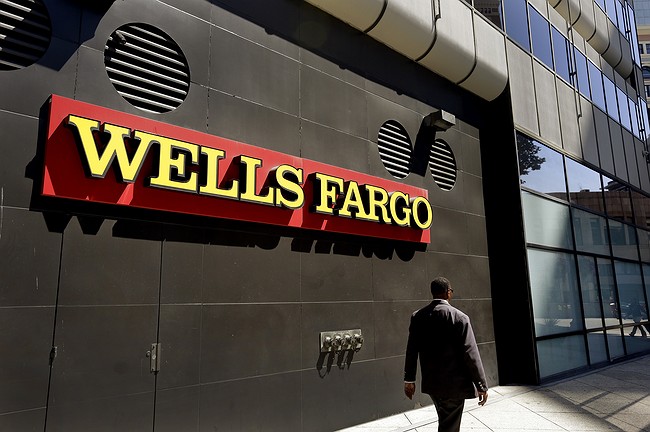-
Tips for becoming a good boxer - November 6, 2020
-
7 expert tips for making your hens night a memorable one - November 6, 2020
-
5 reasons to host your Christmas party on a cruise boat - November 6, 2020
-
What to do when you’re charged with a crime - November 6, 2020
-
Should you get one or multiple dogs? Here’s all you need to know - November 3, 2020
-
A Guide: How to Build Your Very Own Magic Mirror - February 14, 2019
-
Our Top Inspirational Baseball Stars - November 24, 2018
-
Five Tech Tools That Will Help You Turn Your Blog into a Business - November 24, 2018
-
How to Indulge on Vacation without Expanding Your Waist - November 9, 2018
-
5 Strategies for Businesses to Appeal to Today’s Increasingly Mobile-Crazed Customers - November 9, 2018
Wells Fargo to Pay $190 Million for Illegally Opened Accounts
The bank now has to pay $100 million to the federal agency Consumer Financial Protection Bureau (CFPB), $35 million to the Office of the Comptroller of the Currency and $50 million to the City and County of Los Angeles.
Advertisement
“Wells Fargo reached these agreements consistent with our commitment to customers and in the interest of putting this matter behind us”, the bank said in a statement Thursday.
“Wells Fargo employees secretly opened unauthorized accounts to hit sales targets and receive bonuses”, said Richard Cordray, director of the Consumer Financial Protection Bureau, in a statement Thursday. “It is important to understand the context, the 5 year period involved and the size of our workforce”, a Wells Fargo spokesperson said in a statement.
Like other banks, Wells Fargo has pushed cross-selling of multiple products to its customers to bolster sales and profitability at a time when both have been under pressure from a sluggish economy and superlow interest rates.
Wells Fargo regularly releases numbers about how many products it sells to customers, a practice it calls “cross-sell”.
The regulator accused it of “widespread illegal practice” around account openings, sales targets and compensation incentives. The story series prompted the Los Angeles City Attorney office to sue Wells Fargo over its tactics. Sandbagging meant employees would fail to open accounts requested by customers and instead accumulate a number of account applications to be opened on a later day. Such products included overdraft insurance, travel insurance, new accounts and credit cards. “Wells Fargo built an incentive-compensation program that made it possible for its employees to pursue underhanded sales practices, and it appears that the bank did not monitor the program carefully”. They should never be taken advantage of by their banks. The CFPB estimates that employees also applied for roughly 565,000 unauthorized credit card accounts, on which many consumers incurred annual fees and associated finance charges.
As for being “open”, in recent regulatory filings the bank did not disclose that it was under investigation.
The bank said it has also disciplined and fired managers and employees who “acted counter to our values”, and has worked to improve training and monitoring programs. She said about two months passed before the bank agreed to close the $15,000 credit line.
Wells Fargo declined to say when it hired a consulting firm to investigate the allegations.
It then covertly funded them with customers’ money, sometimes creating false email addresses to enroll them.
Recommendations may include requiring employees to undergo ethical-sales training, and reviewing the bank’s performance measurements and sales goals. That’s exactly what happened to Wells Fargo customers nationwide. The Guardian subsequently found that sales quotas that employees said led to such accounts being opened were still in place. The bank listed 265,000 employees as of the end of 2015.
Advertisement
The largest US bank by market capitalization will pay $185 million in penalties and $5 million to customers that regulators say were pushed into fee-generating accounts they never requested.





























